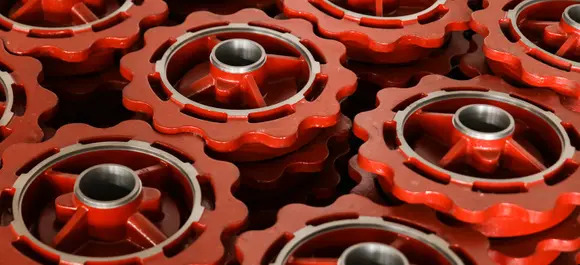Mobile:+86-311-808-126-83
Email:info@ydcastings.com
English
Design and Analysis of Radial Vane Impellers for Enhanced Fluid Efficiency in Engineering Applications
Understanding Radial Vane Impellers Design and Applications
Radial vane impellers are crucial mechanical components used in various pumping and fluid handling systems. Their unique design and operational principles make them ideal for specific applications where efficiency, performance, and fluid dynamics are paramount. In this article, we will explore the fundamental characteristics of radial vane impellers, their advantages, and the industries that most commonly utilize them.
Design Characteristics
The radial vane impeller is characterized by its blades, which extend radially from a central hub. This design allows the blades to move the fluid in a radial direction, effectively creating a centrifugal force that propels the fluid outward. The shape, angle, and number of vanes significantly influence the impeller's performance, affecting parameters such as flow rate, pressure rise, and efficiency. Typically made from materials such as stainless steel, plastic, or composite materials, the choice of material can depend on the application's specific requirements, including resistance to corrosion, wear, and temperature.
Advantages of Radial Vane Impellers
One of the primary advantages of radial vane impellers is their ability to handle high flow rates and generate substantial pressure. This makes them suitable for applications that require the movement of liquids over considerable distances or against significant resistance. Additionally, the radial design minimizes turbulence and energy loss during fluid transfer, contributing to higher efficiency compared to other impeller types.
radial vane impeller

Another notable benefit is versatility; radial vane impellers can be designed to accommodate a variety of applications, including wastewater treatment, chemical processing, and HVAC systems. Their ability to maintain performance across a wide range of operating conditions makes them an excellent choice for industrial environments.
Applications
Radial vane impellers are extensively used in several industries. In the water and wastewater treatment sector, for example, they play a vital role in pumping sewage, helping to transport water to treatment facilities efficiently. In the chemical processing industry, these impellers are utilized for mixing and transporting corrosive liquids. Their robust design ensures longevity and reliability, even when handling aggressive fluids.
In the HVAC industry, radial vane impellers are often used in air handling units. They facilitate the movement of air efficiently, ensuring optimal temperature control and ventilation in large buildings. Moreover, in automotive applications, these impellers are used in cooling systems to circulate coolant fluids, which helps maintain engine temperature and performance.
Conclusion
Radial vane impellers represent a significant advancement in fluid handling technology, providing dependable solutions across various sectors. Their design allows for efficient and effective fluid transport, making them a staple in many industrial processes. As technology continues to evolve, the potential for enhanced designs and materials will likely expand the applications of radial vane impellers, further solidifying their importance in engineering and manufacturing. Understanding their capabilities and applications can lead to better design choices and greater efficiency in operational processes, ultimately benefiting industries that rely heavily on fluid dynamics.
-
Premium Fan Housing & Motor Casing for Optimal AirflowNewsAug.31,2025
-
High-Performance Automobile Water Pump & Electric SolutionsNewsAug.30,2025
-
Expert Stainless Steel Casting | Precision & Durable Metal PartsNewsAug.29,2025
-
Precision Metal Castings: Aluminum, Stainless Steel & Die CastingNewsAug.28,2025
-
Superior Aluminum Castings in Automotive Engine PartsNewsAug.22,2025
-
Common Materials Used in Fan Housing ManufacturingNewsAug.22,2025











